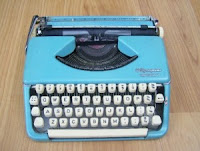The University of Oxford has dropped the Oxford comma.
And it's about time. It's useful when it eliminates ambiguity and makes meaning clear; otherwise, it's clutter.
Freelance advice and writing tips from a good writer who aspires to greatness.
Springfield Man Killed in CollisionCollision Kills Springfield Man
President Kennedy Assassinated in Dallas, TexasOswald Assassinates President Kennedy in Dallas, Texas
For me to report that I paid my bill by saying "The bill was paid by me," with no stress on "me," would sound inane. ... But that is no argument against passives generally. "The bill was paid by an anonymous benefactor" sounds perfectly natural.How to Know When to Use the Passive Voice
Words that turn cents into dollars.Words that turn indifference into customer loyalty.Words that get the job done.

 My friend received an intemperate email yesterday from someone upset about the editorial policy of an online journal he edits. The writer was irked that the magazine, so he claimed, allowed editors to change an article without the author's permission. He took offence, declared the policy "barbarous" and announced that he would never submit his writing to the site, since he was one of those writers who regard themselves as "artists rather than stenographers."
My friend received an intemperate email yesterday from someone upset about the editorial policy of an online journal he edits. The writer was irked that the magazine, so he claimed, allowed editors to change an article without the author's permission. He took offence, declared the policy "barbarous" and announced that he would never submit his writing to the site, since he was one of those writers who regard themselves as "artists rather than stenographers." Craigslist can turn up worthwhile job leads if you have your wits about you. If you're blind to the risks, however, you can easily be taken for a ride.
Craigslist can turn up worthwhile job leads if you have your wits about you. If you're blind to the risks, however, you can easily be taken for a ride.Informal style is by no means restricted to speech. Informal style is now quite common in newspapers and magazines. They generally use a mixture of styles: a little more informal for some topics, a little more formal for others. And informal style is also becoming more common in printed books on academic subjects. We've chosen to write this book in a fairly informal style. If we hadn't, we wouldn' t be using we 've or hadn't, we'd be using we have and had not.In most writing contexts, strictly formal English sounds very odd. Failing to observe a rule of formal writing is not a failure to write standard English. More often than not, it's just good writing.